Bachelor's Degree in Digital and Multimedia Design
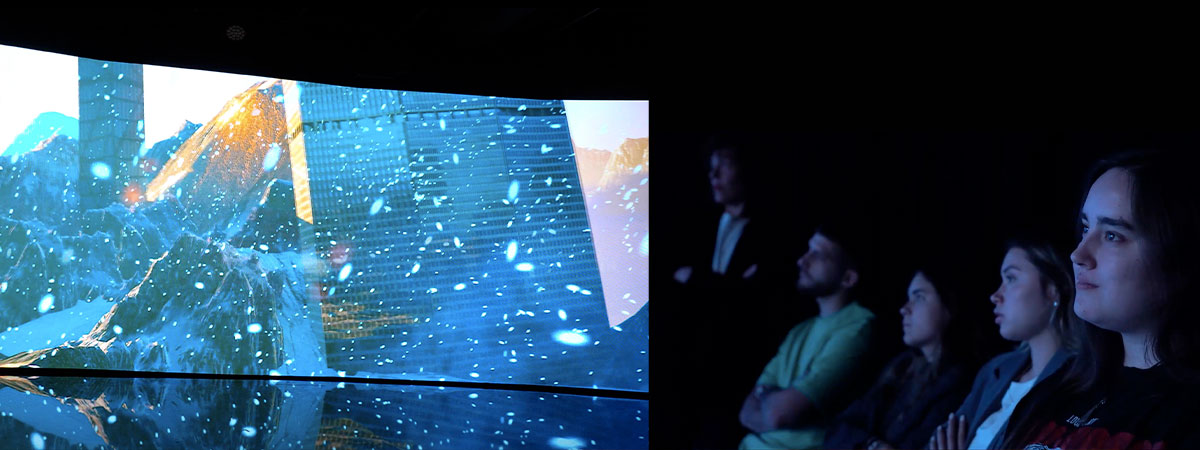
Up-to-date program adapted to the needs of the digital design sector
The Bachelor's Degree in Digital and Multimedia Design combines a creative vocation and a passion for technology and design. An innovative and multidisciplinary program whose objective is for students to achieve their own style that they can apply to designing and creating digital content in any type of communication medium.
Thanks to a versatile, up-to-date curriculum that adapted to the needs of the digital design sector, the electives offered in it and the fact that the professors who teach the subjects are professionals in the sector, the bachelor's degree offers students the possibility of learning to generate aesthetic solutions to different communication demands.
Immersed in a multimedia reality, and thanks to the knowledge acquired throughout the degree, which delves into the fundamentals of the main branches of digital design, our graduates will enter the professional field with one of the most demanded profiles by Agencies and Studios today: multimedia creator. Thanks, as we said, to the wide range of electives offered by the curriculum of the Bachelor's in Digital and Multimedia Design, students will be able to model their aesthetic interests to strengthen their skills and become professionals in one or more of the most demanded profiles in the design sector: graphic design, web design, audiovisual design and the creation of videogames.
"The Bachelor's Degree in Digital and Multimedia Design is a program that harmonizes creativity, art, and technology, tailored to meet the dynamic needs of the digital design sector. With a strong emphasis on creativity across various disciplines, this program provides comprehensive training to nurture highly skilled designers capable of meeting diverse communication needs. Students graduate as adept designers adept in all facets of the digital landscape: encompassing traditional graphic design, web design, audiovisual creation, and video game development."

Amaya Hernández Director of the Bachelor’s Degree in Digital Design
The Bachelor's Degree students carried out a videomapping project in Lebrija (Seville), the birthplace of Antonio de Nebrija, on the occasion of the 5th Centenary of his death.
Nebrija Designs
Our students learn by doing, transferring what they learn in the classroom to real projects and activities with the aim of bringing them as close as possible to the reality of their professional sector. Talent, creativity and work united in continuous learning.


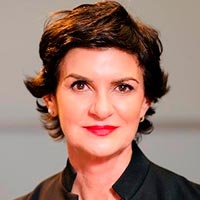
 Luis María Alcázar García
Luis María Alcázar García
 Pablo Álvarez de Toledo Muller
Pablo Álvarez de Toledo Muller
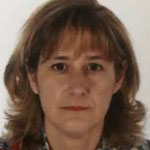 María Carmen Arroyo Rodríguez
María Carmen Arroyo Rodríguez
 Diana Angoso de Guzmán
Diana Angoso de Guzmán
 Catalina Benavides Jiménez-Landi
Catalina Benavides Jiménez-Landi
 Magdalena Correa Larraín
Magdalena Correa Larraín
 Celestino Díaz Tristán
Celestino Díaz Tristán
 Alejandro Domínguez Villa
Alejandro Domínguez Villa
 Fausto Galindo Matas
Fausto Galindo Matas
 María de las Nieves Febrer Fernández
María de las Nieves Febrer Fernández
 Sergio García Cabezas
Sergio García Cabezas
 Almudena Gómiz Macein
Almudena Gómiz Macein
 Marta González Caballero
Marta González Caballero
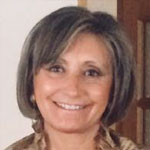 María Dolores López Faraldos
María Dolores López Faraldos
 Emilio López-Galiacho Carrilero
Emilio López-Galiacho Carrilero
 Diego Mayoral Martín
Diego Mayoral Martín
 Acoidán Méndez Jiménez
Acoidán Méndez Jiménez
 Victoria Isabel Moreno Gil
Victoria Isabel Moreno Gil
 Ramon Ortega Lozano
Ramon Ortega Lozano
 Alejandro Priego Díaz
Alejandro Priego Díaz
 Mª del Mar Ramos Rodríguez
Mª del Mar Ramos Rodríguez
 Pedro Juan Sánchez Bermejo
Pedro Juan Sánchez Bermejo
 Mariano Sanz Moreno
Mariano Sanz Moreno
 Ángel Serrano Valverde
Ángel Serrano Valverde
 Gustavo Adolfo Silva Gutiérrez
Gustavo Adolfo Silva Gutiérrez
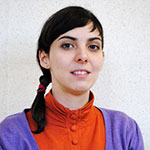 Alba Soto Gutierrez
Alba Soto Gutierrez
 Francisco M. Valverde Hernandez
Francisco M. Valverde Hernandez
 Alberto Daniel Villa Gracia
Alberto Daniel Villa Gracia


